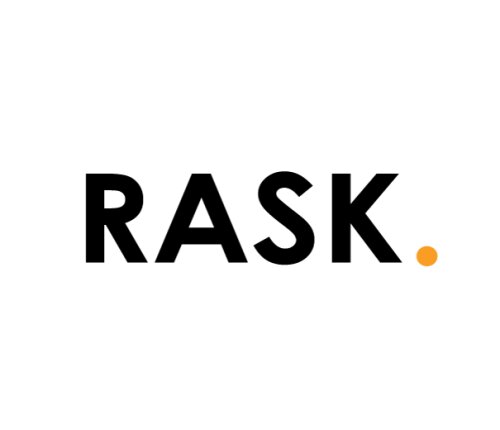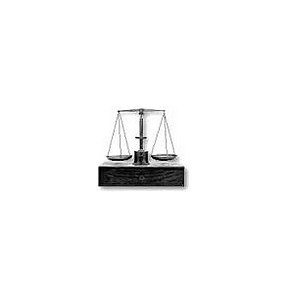Best Bad Faith Insurance Lawyers in Estonia
Share your needs with us, get contacted by law firms.
Free. Takes 2 min.
Or refine your search by selecting a city:
List of the best lawyers in Estonia
About Bad Faith Insurance Law in Estonia
Bad Faith Insurance refers to the dishonest practice by an insurance company to not fulfill its contractual obligations to its policyholders. In Estonia, Bad Faith Insurance law is designed to protect consumers against such unethical practices. While insurance companies are generally diligent in managing claims, instances where they unjustifiably deny claims, delay payments, or offer settlements far below the rightful amount constitute bad faith actions. Estonian law offers legal recourse to individuals who find themselves faced with these challenges, ensuring they receive fair treatment and compensation as per the terms of their insurance policies.
Why You May Need a Lawyer
While dealing with insurance claims, several situations might necessitate seeking legal advice in Estonia:
- Unexplained delays in claim processing and payment.
- Unjustified denial of an insurance claim that you believe should be approved.
- Receiving a settlement offer that does not cover the expenses outlined in your policy.
- Engaging with complex insurance policy language that hampers your ability to understand your rights and obligations.
- Faced with threats of cancellation or increased premiums after filing a claim.
- Discrepancies between policy promises and the actions of your insurer.
A qualified lawyer can help navigate the complexities of these situations and push for a resolution in line with Estonian law.
Local Laws Overview
Estonia's insurance regulations are grounded in both European Union law and national legislation. Key aspects include:
- The Consumer Protection Act: Protects policyholders against unfair commercial practices, including the non-fulfillment of clearly stated insurance policy terms.
- The Insurance Activities Act: Governs the operations of insurance providers within Estonia, emphasizing the need for honesty and transparency in dealings with consumers.
- Estonian contract law principles: Enforcing contractual obligations under the Law of Obligations Act, which may be applicable if insurance policies are perceived as contracts.
These laws ensure that insurance companies are held accountable for their commitments, giving individuals a solid legal foundation to contest any form of bad faith practices.
Frequently Asked Questions
What is meant by Bad Faith Insurance?
Bad Faith Insurance refers to unreasonable and unfair actions by an insurance company that prevent a claimant from receiving entitled benefits.
How do I know if my insurance company is acting in bad faith?
If your claim has been unjustifiably delayed, denied without a solid reason, or settled for less than it is worth, these might indicate bad faith actions by your insurer.
Can I contest a denied insurance claim in Estonia?
Yes, you can contest it. You might need a lawyer to review your policy, gather evidence, and possibly file a lawsuit to challenge the denied claim.
What legal actions can be taken against bad faith insurers in Estonia?
You can file complaints with the Estonian Financial Supervision Authority (FSA) or take legal action through Estonian courts to seek justice and compensation.
What compensation can I expect in a bad faith insurance case?
This depends on your case. Compensation may cover the original claim amount, additional damages incurred due to delays or denial, and possibly punitive damages.
How long does it take to resolve a bad faith insurance claim legally?
The duration can vary based on the complexity of the case and the insurance company’s response. Cases can take several months to a few years to resolve fully.
Is there a statute of limitations for filing a lawsuit against bad faith insurers in Estonia?
Yes, typically you have a limited period after incident discovery to file your claim, often three years, but specific timelines should be verified with legal counsel.
What evidence is needed in a Bad Faith Insurance lawsuit?
Policy documents, correspondence with the insurer, medical records (if applicable), and any evidence of the insurer’s lack of justification for denying or delaying your claim.
Can I handle a bad faith claim without a lawyer?
You might start without a lawyer; however, due to the complexities and legal nuances involved, having legal representation is advisable to navigate the process effectively.
How do Estonian courts view bad faith actions by insurers?
Estonian courts take such actions seriously, seeking to uphold consumers' rights and holding insurers accountable for meeting their contractual obligations.
Additional Resources
For further assistance, consider the following resources:
- Estonian Financial Supervision Authority (EFSA): Oversees and regulates insurance companies, where you can file complaints regarding insurance company practices.
- Estonian Consumer Protection Board: Offers guidance and support for consumers facing unfair commercial practices.
- Law firms specializing in insurance claims: Provide professional legal assistance and representation in bad faith insurance cases.
- Insurance brokers or consultants: These professionals can offer clarity on policy terms and mediate between you and your insurer.
Next Steps
If you believe you're dealing with a bad faith insurance situation, consider the following steps:
- Document your situation: Gather all evidence including correspondence with the insurance company, policy documents, and records of your claim.
- Seek professional advice: Contact a lawyer who specializes in insurance law for a preliminary consultation.
- File a complaint: Write to the Estonian Financial Supervision Authority to report the insurance company's conduct.
- Consider legal action: With your lawyer’s advice, prepare to take legal action if necessary to seek fair compensation and justice.
These steps will ensure you are well-prepared to address the issue while safeguarding your rights under the provisions of Estonian law.
Lawzana helps you find the best lawyers and law firms in Estonia through a curated and pre-screened list of qualified legal professionals. Our platform offers rankings and detailed profiles of attorneys and law firms, allowing you to compare based on practice areas, including Bad Faith Insurance, experience, and client feedback.
Each profile includes a description of the firm's areas of practice, client reviews, team members and partners, year of establishment, spoken languages, office locations, contact information, social media presence, and any published articles or resources. Most firms on our platform speak English and are experienced in both local and international legal matters.
Get a quote from top-rated law firms in Estonia — quickly, securely, and without unnecessary hassle.
Disclaimer:
The information provided on this page is for general informational purposes only and does not constitute legal advice. While we strive to ensure the accuracy and relevance of the content, legal information may change over time, and interpretations of the law can vary. You should always consult with a qualified legal professional for advice specific to your situation.
We disclaim all liability for actions taken or not taken based on the content of this page. If you believe any information is incorrect or outdated, please contact us, and we will review and update it where appropriate.
Browse bad faith insurance law firms by city in Estonia
Refine your search by selecting a city.














